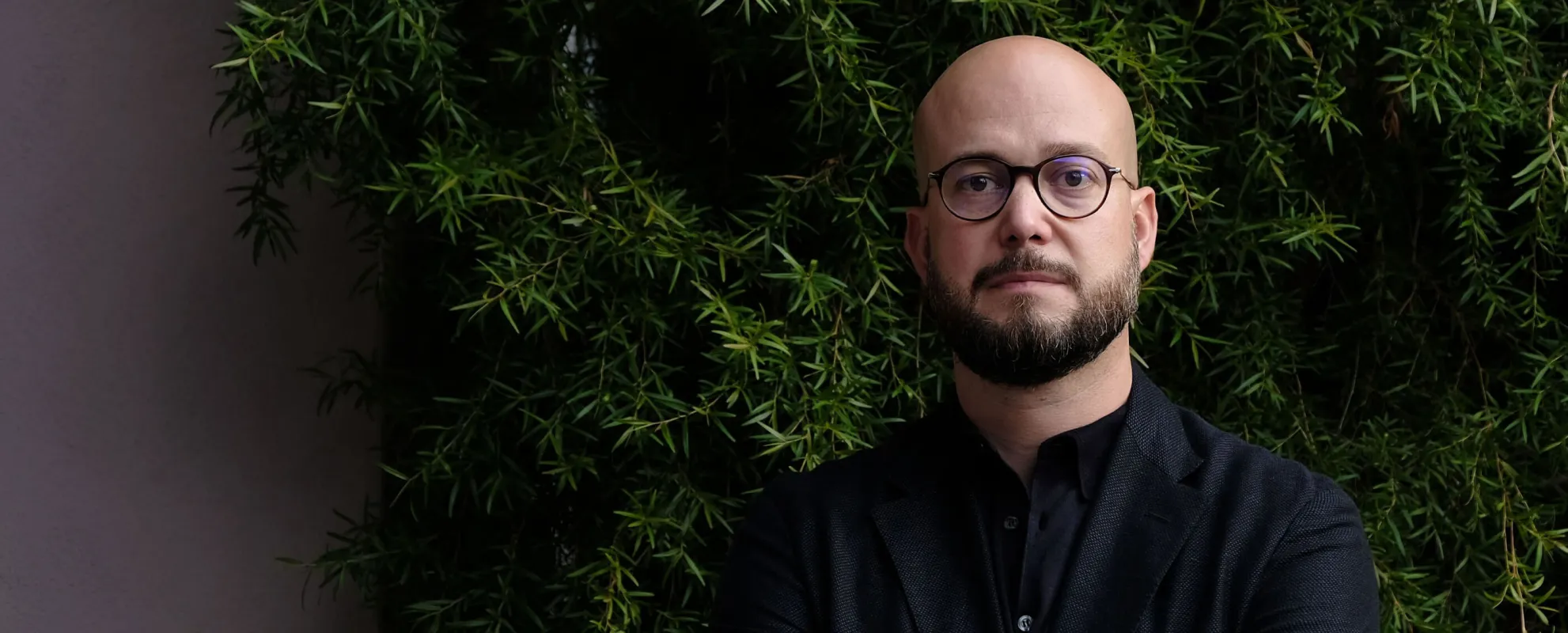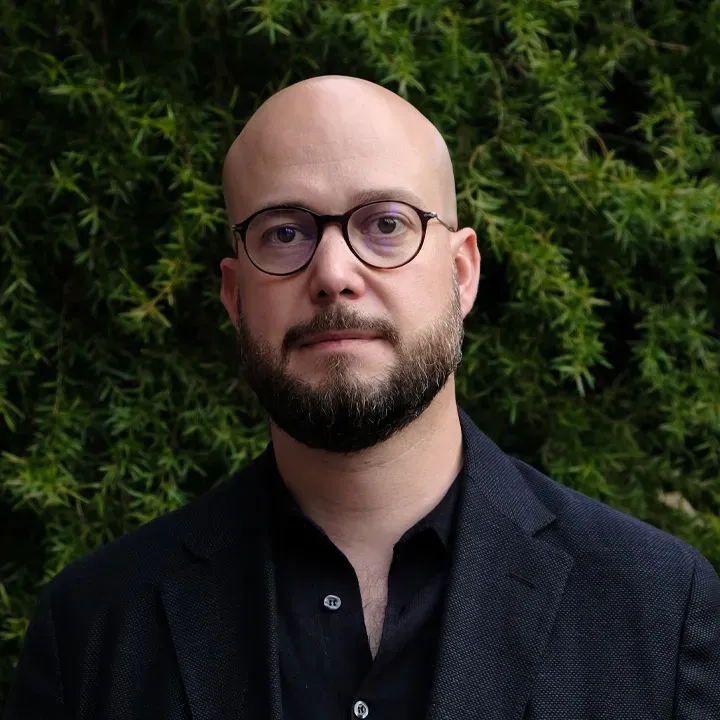In late February 2020, Matteo Maggiori had just finished giving a talk in Frankfurt, Germany. He was at the airport, ready to board a plane to Turin, Italy, to accept the Carlo Alberto Medal, which is awarded biennially to an Italian economist under 40 for their “outstanding research contributions.”
At the Turin event, he was slated to give a lecture titled “The International Monetary System: New Theory and Evidence.” He planned to describe the ways in which unexpected crises were capable of fomenting shifts in the structure of the global financial system.
At the airport that day, talking on the phone with his wife, he realized that a large crisis of a different nature was at hand: COVID-19 cases were surging in parts of Europe. He canceled his trip to Turin and purchased a ticket back home to the U.S. A few hours after his plane took off, cities throughout northern Italy canceled all public events.
Not long thereafter, the global economy shuddered and stalled.
It was the third time in 15 years that Maggiori, an associate professor of finance at Stanford GSB, had observed such widespread economic instability. Prior to the coronavirus pandemic, the European Union was hammered by a sovereign debt crisis, and before that came the global crash of 2007 — the same year that Maggiori began his PhD studies at Berkeley.
“These crises may be extremely rare,” he says, “but there is a meaningful difference between extremely rare and impossible; we might not be spending enough time as a profession thinking about this type of event ahead of time.”
The 10-Year-Old Economist
Crises first drew Maggiori to economics. He was ten years old, living in Rome, the city of his birth, and he was captivated by the European Exchange Rate Mechanism crisis. “That had an extraordinary effect on Italy, and on the daily lives of the people who lived there,” he says. “Because of that, it attracted my attention.”
After undergraduate and master’s degrees in economics, Maggiori took a job at JP Morgan, where he traded currencies and interest rates. After two years in the private sector, he decided to return to school for his doctorate, but the brief professional stint “profoundly” influenced the trajectory of his research. He recognized a striking difference between the ways in which investors analyzed exchange rates and the ways in which traditional, mainstream academic models portrayed them. He went on to develop a model of his own that better stitched both worlds — theory and practice — together.
“Theoretical modeling helps because it really forces you to clarify what you have to believe, what you need to start with as assumptions, and how that gets to particular outcomes,” Maggiori says. “If a model is successful — and it’s only successful as far as other people find it useful — then it shows us a new way to think about a problem.”
New Answers with Novel Data
In parallel with theoretical modeling, Maggiori has undertaken several groundbreaking empirical projects. “There are many big questions that remain unexplored because of data issues,” he says. “When I start to get the sense that the right kind of data is becoming available to take a serious stab at these questions, then I get excited.”
With longtime collaborators Brent Neiman at the University of Chicago and Jesse Schreger at Columbia University, for example, Maggiori has assembled a new set of extremely detailed data on securities holdings — and, consequently, financial risk — around the world. The results have recalibrated our understanding of where global investments actually end up.
While official reports from the U.S. Treasury in 2017 calculated that U.S. investors held $160 billion in Chinese stocks, Maggiori and his coauthors, by incorporating holdings in offshore shell companies, found that the true number was closer to $700 billion. Similar discrepancies are widespread: Europeans invest heavily in companies registered in the Netherlands and Luxembourg, but Maggiori and his coauthors show that much of the investment is actually in subsidiaries of multinationals from other countries, like Brazil and Russia.
This work is at the core of the Global Capital Allocation Project, an ongoing investigation into the complex and opaque pattern of capital flows around the world. “Matteo’s recent research in this area provides the best estimates to date of how money moves around the world in capital markets,” says Stanford GSB Dean Jonathan Levin. “The results improve in many ways on official measurements.”
Another one of Maggiori’s projects took advantage of a quirk of British and Singaporean housing markets to place a more reliable number on how people, in practice, discount over extremely long periods of time. By essentially comparing two types of home ownership — a freehold or permanent ownership to a leasehold with a finite maturity (sometimes 100 years or more) — Maggiori and coauthors Stefano Giglio of Yale and Johannes Stroebel of NYU were able to tease out how people think about extremely long-term risks and investments. These findings are an important input into the debate over issues like climate change, in which present-day investment often doesn’t provide benefits until decades in the future.
These strands of research show just how wide Maggiori’s research contributions and interest have ranged. Maggiori bases his pursuits on a central criterion: curiosity.
“I’m hardwired to select things that I truly want to work on, that interest me, and I am OK if they might be different from what I have done in the past,” he says.
He describes his research process as “extremely nonlinear.” An idea will stick in his head and remain there for years until, finally, “something clicks and I figure out a way to tackle it; this, of course, happens rarely.” He still puzzles over questions from his time at JP Morgan, more than 15 years ago, that he hasn’t found a way to adequately answer. But maybe someday: “You just never know if or when it will happen.”
Expanding the Reach of Economics
In November 2020, the American Finance Association awarded Maggiori the Fischer Black Prize, which is given biennially to “an outstanding financial economist” under the age of 40. Maggiori was pleasantly surprised, but not only from a sense of personal validation.
“I felt that this was in part a recognition of international macrofinance as a field,” he says. “It was recognition given to me, but it would not have been possible without all of the amazing research that’s being done by young people, all the work that’s being done by my coauthors and others in the field.”
Maggiori himself has played no small part in elevating the field’s profile. “Matteo is completely committed as a real builder and leader in the international macro and finance field,” says Neiman. “From organizing conferences for junior colleagues to allowing PhD students from institutions all over the country to attend his online course, he shows that he cares not only about the intellectual progress in the field but also the improvement of its operating norms and accessibility.”
As his career progresses and standing rises, Maggiori has begun to more energetically address the question of how his work filters into the world beyond academia. “There is a big debate out there about the role of economists in society, particularly research economists, and I struggle with this myself,” he says. “Producing good research requires a tremendous amount of effort and time, but if we don’t put our best foot forward publicly, it diminishes the impact not only of one’s own research, but also of how much good we might do collectively.”
This issue takes on particular salience given the backdrop of Maggiori’s career — his childhood observing Italian families stung by economic hardship; his matriculation at Berkeley on the cusp of the global financial crisis; the occurrence of two more crises in relatively quick succession. With the experience of these events embedded in his work and outlook, he hopes that insights from his research generate helpful action in the world of policy.
“Intellectually, I hope to understand how events like these international crises occur, but I also want to understand how we might best respond to them,” he says. “Economics, as a profession, can make scientific advances to meet these challenges and to understand how to improve outcomes. I’d like to be a small part of that effort.”
Photos courtesy of Matteo Maggiori


